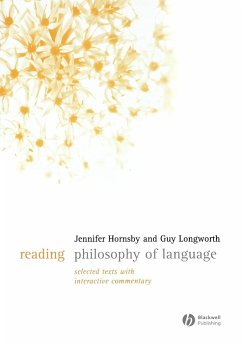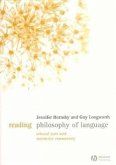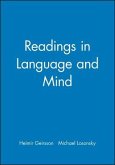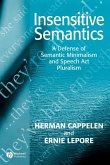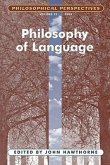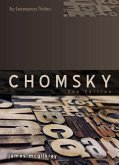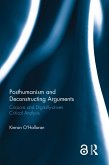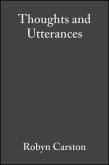Designed for readers new to the subject, Reading Philosophy of Language presents important writings by leading figures in the field, such as Austin, Chomsky, Davidson, Dummett, and Searle. Three texts are presented on each of six key topics: reference and meaning; speech and action; meaning and truth; knowledge of language; meaning and compositionality; and non-literal meaning. Extensive editorial material guides readers through these texts. The editors provide an introduction to the text as a whole, outlining the subject's principal concerns, and explaining how these give rise to the particular questions broached in each chapter. Chapter introductions then locate each piece in context and provide background on relevant terminology and theories; interactive commentaries help readers to engage with the texts, and acquaint them with alternative positions that might be taken on key issues.
"To get stuck in to this book is to taste the sort of intenselearning experience that you might get if the editors were givingyou personal tutorials. Those who teach philosophy of language toUniversity undergraduates will regard Reading Philosophy ofLanguage as a valuable addition to their armoury." Dr AndrewWoodfield, University of Bristol
"This is an outstanding text, with a perfect blend ofwell-selected original works and excellent, interleaved commentary.I will immediately adopt it for my undergraduate Philosophy ofLanguage course." David Shier, Washington State University
"This is an outstanding text, with a perfect blend ofwell-selected original works and excellent, interleaved commentary.I will immediately adopt it for my undergraduate Philosophy ofLanguage course." David Shier, Washington State University

